Sustainability
We build that relationship with customers through trust, fairness, respect, honor, innovation, and harmony serving beyond expectations and satisfaction.

It has been observed by our company the three pillars of Corporate Sustainability. We make sure that our corporate sustainability is with the approach of conducting business that creates sustainable, long-term shareholder, employee, consumer and societal value by pursuing responsible environmental, social, economic or governance strategies. It has been named by our company as a key priority moving forward. Our investors are growing concerned who seek not only economic profit but also social good. Our company can improve and develop environmental sustainability by focusing on reducing carbon footprints, package waste, water usage, wasteful practices, and by using recycled or reused materials.
Our company’s strategy and actions in reference to sustainability is to reduce adverse environmental and social impacts resulting from business operations. So, our plan with sustainability in our business are improving energy management with alternative power sources, deploying infrastructure that reduces wasteful practices, enabling sustainable development by assessing risks and improving resiliency while adhering to external regulations and development goals, and operating dynamic and efficient supply chains to empower a circular economy, encourage reuse, design out waste, promote sustainable consumption and protect the environment.
Why is sustainability in business important?
We’re doing business in an unpredictable world. Climate change, dwindling natural resources, and ever-increasing demands on our energy and food supply are disrupting business operations and supply chains in unexpected ways. It’s more important than ever for private and public organizations to fundamentally rethink the way they function. Transforming into a successful sustainable business requires new levels of resilience and agility, rooted in responsible practices that preserve our planet.
Sustainability is a business imperative and should be core to the strategy and operations of every business.
To safeguard our planet and our future, companies need to drive decarbonization, meet environmental regulatory requirements and compliance deadlines, and improve resource consumption. Those paving the way in sustainable business practices are embracing new business models to win customers, increase brand loyalty and uncover new opportunities to lower costs.
The reasons for this are both ethical and financial:
- Employees are increasingly looking for mission-driven, purpose-led employers who care about the planet when deciding where to work. 71% of employees and employment seekers say that environmentally sustainable companies are more attractive employers.
- Consumers are willing to pay a premium for goods from brands that are environmentally responsible. 80% of consumers indicate sustainability is important to them.
- Governments, investors, employees and customers are demanding new levels of enterprise accountability, including action to address climate change.
- Many of the world’s top economies have or are developing corporate disclosure requirements around environmental impact, driving businesses to curb GHG emissions.
- The rise of ESG investment criteria and sustainable investing means that a sustainable business is inherently more attractive to the rising numbers of responsible investors. Investment in ESG assets may reach USD 53 trillion by 2025, representing over a third of global assets.
Benefits of sustainability in business
Companies that conscientiously integrate sustainable practices into their operations are seeing valuable business benefits. These include:
Competitive advantage
Investor appeal
Compliance with regulatory requirements
Increased longevity of transformation investments
Talent acquisition
Revenue growth

How to create a sustainable strategy
Early leaders in enterprise sustainability applied digital technologies such as artificial intelligence (AI), Internet of Things (IoT) data, blockchain and hybrid cloud to help operationalize sustainability at scale. In the process, many are uncovering opportunities to increase efficiencies while creating more motivated, inspired employees and more satisfied, loyal customers. The key to a successful sustainability strategy is to balance environmental drivers with key differentiators and market demands.
Step one to creating a sustainable strategy is to ensure stakeholders have a clear and agreed-upon vision for the future state of the business. This might require outside help to get everyone on the same page. IBM Garage™ for sustainability experts can help your organization identify top challenges and opportunities, prioritize critical actions and measure outcomes against sustainability and business goals to realize results in weeks instead of months.
Next, follow a timebound framework approach to implementing the sustainable vision across every aspect of your organization. Document everything in an environmental management system with defined roles, responsibilities and accountability.
Finally, start with concrete initiatives that can generate tangible, measurable results and show value. This will demonstrate the value of sustainability in business to obtain more buy-in, create momentum, and scale.
Challenges with sustainability in business
Customer readiness
Cost
Corporate sustainability areas
There are five key focus areas to plan a resilient and profitable path forward:
Climate risk management and Environmental, Social, and Governance (ESG) reporting.
The past decade has had the largest natural disaster impact on record. Organizations must factor the impact of climate change, which is causing extreme weather and climate events, into their business operations in a scalable and repeatable manner. Prepare for disruption with solutions that bring together multiple data sources, including proprietary, third-party, geospatial, weather and IoT data, with advanced analytics. Predict and plan for critical weather events to enable sustainable development and ensure business continuity. Reduce the operational costs and complexity of Environmental, Social, and Governance (ESG) compliance and reporting.
Systemic inertia
Lack of tools, insights and expertise
Revenue growth
Resilient infrastructure and intelligent operations
Sustainable supply chains and circularity
Electrification, energy and emissions reduction
Enabling clean electrification at scale will require leaders to come together in new ways to rethink how electrical systems operate and their role in a net-zero GHG emissions are often measured in carbon dioxide (CO2) equivalent economy. Drive the transformation to decarbonization by enhancing grid efficiency, safety, reliability and resilience with intelligent asset management for energy and utilities. By implementing smart metering to better understand actual resource usage, you can keep critical assets and resources operating at maximum efficiency, improve equipment operations, lower costs and enhance services through automation.
Sustainability strategy
The future of sustainability in business
Insights from environmental data are changing business and societal behaviors, resulting in the emergence of sustainable enterprises. Thus, sustainability in business is a megatrend that will continue to profoundly affect companies’ competitiveness and even survival in the market. Leaders are looking to harness the power of data, AI and blockchain to manage climate and environmental risk, optimize asset performance and resource utilization, drive decarbonization and build more sustainable supply chains.
IBM® continues its own sustainability journey, including conservation and renewable energy procurement, CO2 emissions reduction, product and waste reuse and recycling, reduced water withdrawals and sustaining critical biodiversity. By driving continual improvements and setting new goals for environmental sustainability across its operations, IBM’s 30 years of environmental leadership can help you build sustainability solutions that are good for your business, your brand, and our planet.

